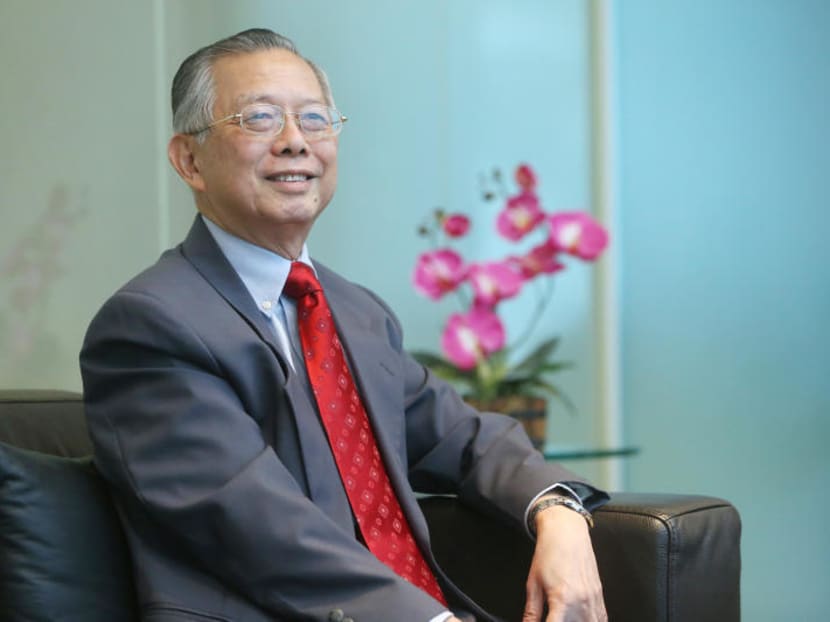S’pore should ‘move with more urgency towards gracious society’
SINGAPORE – The push for a more a gracious society should take on greater urgency in order for Singapore to thrive in the decades ahead, said former head of the civil service Lim Siong Guan on Tuesday (Oct 10).

Former head of civil service Lim Siong Guan (in picture) said the push for a more a gracious society should take on greater urgency in order for Singapore to thrive in the decades ahead. Photo: TODAY file photo
SINGAPORE – The push for a more a gracious society should take on greater urgency in order for Singapore to thrive in the decades ahead, said former head of the civil service Lim Siong Guan on Tuesday (Oct 10).
Calling on Singaporeans to play their part, Mr Lim also said the government could facilitate the endeavour by considering if the policies crafted reinforce or detract from the goal.
Physical infrastructure such as common spaces in Housing and Development Board estates can help promote graciousness, as can public servants who are “more thinking of the people they are serving”.
“If, as a people, we become oriented that way, I believe it will have this effect on the way government policies are delivered, in the way that people are just looking out for each other,” he told an audience of about 400 at the second of three Institute of Policy Studies-Nathan lectures.
A gracious society can ward against the “social degradation and national decay” that British soldier and scholar John Bagot Glubb found to afflict nations once they reached high levels of affluence, said Mr Lim.
Surveys and his discussions with Singaporeans indicate that people wish to see a gracious society.
Having a gracious society in SG100, or Singapore’s 100th year of independence, topped the wish list of more than 60 participants in their 20s and early 30s at a workshop Mr Lim attended last November. Participants wanted to see society going beyond academics and focusing on active ageing, among other things.
This was also what Labour Movement leaders in their 40s and 50s had wished for, when he met them on a separate occasion in 2015. The leaders also wanted work-life balance and an innovative, creative and smart Singapore, among other things.
Yet, in a 2015 survey of national values, the top trait Singaporeans noticed among those around them was being kiasu (afraid of losing out). Asked about personal values, the respondents cited family, responsibility and friendship, among others.
This raises an “interesting question”, said Mr Lim. “If everyone is saying (those values are) most important, the question is, how come we are not seeing it?”
A gracious society is not only about helping the displaced, the handicapped, the poor and the “misfits”, he said.
It is about the kampung spirit -- the “countless little interactions between neighbours and everyone else we mix with or have to work with every day of the week. It is the little things that define culture and the reality of society”, said Mr Lim.
“It may well take a generation, and we have to start now, building upon what has been done in the past, but moving in a far more deliberate, urgent, and holistic manner,” he said.
The Japanese show it is possible to foster a culture where people look out for one another, he said. For instance, customers at a restaurant would skip coffee after their meals to allow others waiting in line to have their turn more quickly.
“I quote Japan not to urge everyone to become Japanese cultural clones, but to show that it is possible to have a social environment where people feel a sense of being recognised and being treated with respect and consideration. These are the little day-to-day things that we all can do,” said Mr Lim.
In his first IPS-Nathan lecture last month, Mr Lim had touched on the circumstances of Singapore’s unexpected independence and social challenges brought about by its economic prosperity.






